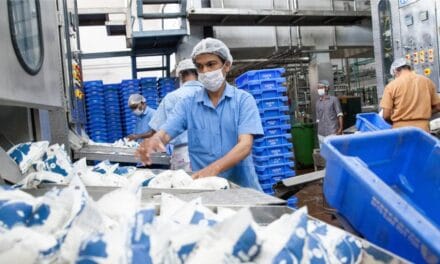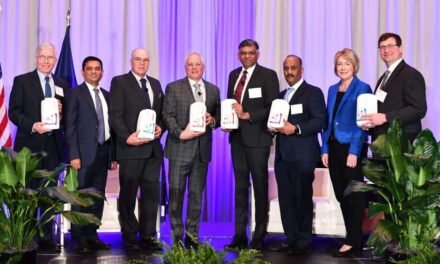India celebrates 60 years of Codex: Safeguarding consumer health and fair food trade.
This year Codex marks its 60th anniversary and to commemorate this milestone, a collection of international food standards to ensure safety and quality in the food trade, the Food Safety and Standards Authority of India (FSSAI) in association with FICCI organised a seminar on ‘India celebrates 60 years of Codex’ on October 27, 2023, in Delhi.
The event witnessed the presence of some of the eminent names which included Sudhansh Pant, secretary, Ministry of Health and Family Welfare (MoHFW), and chairperson, FSSAI; G Kamala Vardhana Rao, CEO, FSSAI and Raj Rajasekar, vice chairperson, CAC. During the opening remarks, these esteemed individuals emphasised Codex’s pivotal role in fortifying food safety policies on a global scale, fostering trade through the harmonisation of international food standards.
Pant congratulated Codex for its exemplary contributions in the last six decades and stressed upon the need for a science-based framework and that active participation from developing nations cannot be overlooked. He urged for a science-based framework and active involvement from developing nations.
He stressed the necessity of adapting to new challenges and technologies, saying, “Collaboration and ongoing participation in Codex activities are essential to ensure food safety remains at the forefront. Indian Government is fully cognisant of the need to bring food regulations in line with modern times, and a new Food Safety Bill (amendment to the Food Safety and Standards Act, 2006), is almost ready. Efforts are underway to table it in the upcoming Parliament session.”
Rao addressed the pressing issues surrounding changing food habits and the emerging challenges associated with cutting-edge food innovations. He underscored the importance of establishing real standards and ensuring the delivery of safe food to the public, stating that it is imperative for the scientific community. He further emphasised the importance of CAC in assuring the same.
In alignment with the commitment to global food safety, Rajasekar highlighted the remarkable expansion of Codex, from its origins as a small group of developed countries to a robust organisation with 188 member countries and one-member organisation. He emphasised that food safety is integrated into every organisation and government, emphasising its paramount significance.
Rajasekar also commended FSSAI’s democratic process in shaping food safety norms and the pivotal role of multi-stakeholder participation, including industry and civil society, in crafting food safety regulations. He also addressed emerging concerns such as the entry of microplastics into the human bloodstream, citing a study from the Netherlands. He concluded by emphasizing the urgency of innovating alternative technologies for food packaging.
The inaugural session paved the way for two illuminating panel discussions on the future of Codex and the imperative to enhance capacity for greater Codex participation in the coming decade. India’s burgeoning engagement in Codex activities was recognized, with notable achievements such as hosting the Codex committee on spices and culinary herbs, co-hosting various sessions on food hygiene and contaminants, and chairing and co-chairing working groups within the Codex system.
The Codex Alimentarius Commission (CAC) is an international organisation set jointly by FAO and WHO in 1963, to protect consumer health and promote fair practices in the food trade. The FSSAI, under the Ministry of Health and Family Welfare is the National Codex Contact Point for India.

















